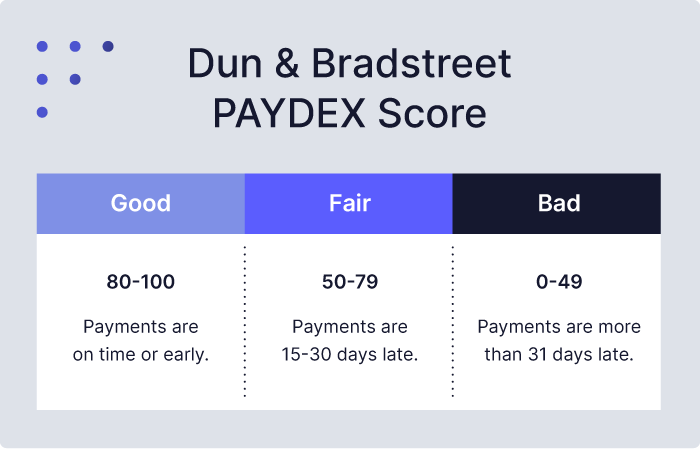
Time To Read – 5 Minutes
Disputing errors on your credit report is crucial for improving your credit score, but it’s important to avoid common mistakes that can delay the process or weaken your case. Here’s what to watch out for to ensure that your efforts are effective and fruitful.
Failing to Provide Sufficient Documentation

When disputing a credit report error, it’s not enough to simply assert that the information is incorrect. You need to bolster your claim with concrete documentation.
This might include payment records that demonstrate you made timely payments, correspondence with creditors that shows you’ve communicated about the error, or identification documents that verify your personal information.
Without this essential supporting documentation, your dispute may be dismissed outright, leaving you with no recourse to rectify the situation.
Disputing Online Without Retaining Evidence
Many credit bureaus streamline the dispute process through online platforms, which can be very convenient. However, one significant drawback is the potential lack of a comprehensive record of your dispute submissions.
This means that while it may be easy to initiate a dispute, you might not have a solid paper trail of your interactions. It is imperative to keep meticulous copies of your dispute letters, any evidence you submitted, and a detailed record of your communication with the bureau.
This evidence will be invaluable should you need to escalate the dispute later on or if you find that the bureau has not responded adequately to your claim.
Disputing the Same Item Multiple Times
Disputing the same item repeatedly without presenting new evidence can actually work against you. Once a credit bureau investigates a dispute and verifies the information as accurate, they are unlikely to change their decision unless you provide compelling new evidence.
Therefore, it’s essential to be strategic about your disputes. Focus your efforts on items that you can realistically substantiate as inaccurate, and ensure that each dispute you file is well-supported by fresh and relevant documentation.
This approach not only strengthens your case but also demonstrates your commitment to resolving the inaccuracies.
Not Following Up
After you file a dispute, the credit bureau is required by law to investigate and respond within 30 days. However, it’s crucial not to assume that everything is resolved simply because you submitted your dispute.
After the investigation period has elapsed, take the time to check your credit report to confirm whether the error was corrected. If you find that the disputed item remains unchanged, don’t hesitate to follow up with both the bureau and the creditor.
This proactive approach ensures that your claim is escalated and taken seriously, and it emphasizes the importance of resolving discrepancies in your credit history.
By avoiding these common mistakes, you’ll greatly enhance your chances of successfully removing inaccuracies from your credit report, thereby improving your credit score.
Understanding the intricacies of the dispute process can empower you to navigate the system more effectively, ultimately leading to a healthier credit profile that opens doors to better financial opportunities. Staying informed and vigilant during this process is key to safeguarding your financial future.
WHEN TO DO A CONSUMER CREDIT DISPUTE
- Wrong identifying information (name, address, employment information, Social Security number, etc.)
- Misspelled names, incorrect middle initials, or names that are different from yours. Incorrect addresses that are inaccurate may create confusion or delay in financial correspondence, such as billing statements or debt collection notices.
- Mismatched employer information could also be reason to credit. IT is important to get employer information correct because employment stability could be taken into consideration for credit applications.
- Closed accounts listed as open
- An account marked as closed by lender when it was closed by the consumer can raise red flags for lenders, and be a negative
- Unfamiliar credit card or loan applications
- Bad debts older than seven years
- Accounts listed twice
- Debts from an old joint account
- Inaccurate payment history
When to do a BUSINESS credit dispute
There can be different types of errors that a business may spot in their credit reports that can reflect the incorrect financial status of the company. So, here are some common discrepancies that you can dispute in their reports through a credit repair letter:
- Identity Theft
- Business credit reports are not private and can be easily accessed online. This accessibility, while beneficial for legitimate businesses seeking financing, also makes it easy for fraudsters to steal the identity of a business, allowing them to open loan accounts, obtain credit cards, or conduct various financial transactions in the company’s name without authorization.
- This type of error can have severe consequences, potentially leading to financial losses and a damaged reputation. Therefore, it is crucial for a business to carefully review its credit report for any dubious transactions that do not align with its financial activities and promptly inform the credit bureaus to rectify these issues, thereby protecting the integrity of the company’s credit profile.
- Information Mix-Up
- Credit bureaus often mix information from different companies into a report, which can create significant confusion and misrepresentation. If a company’s address is similar to yours, or if there are other overlapping identifiers, the credit bureau might inadvertently add their accounts to your reports.
- This overlap can lead to unjustly negative consequences, such as lower credit scores or rejected loan applications based on inaccurate data. Therefore, businesses need to diligently review their credit reports and identify any accounts that are not theirs, ensuring that they dispute any inaccuracies swiftly to maintain a clear and accurate credit history.
- Age of Your Business
- The age of your business is a crucial factor in determining your credit rating, as it often reflects the stability and reliability of your company in the eyes of lenders and creditors.
- Mistakes regarding your business’s age are common in credit reports, whether due to clerical errors or outdated information. Even minor discrepancies can misrepresent your company’s longevity and experience in the market, which may hinder access to favorable financing options.
- It is essential to get any errors related to your business’s age corrected promptly, as this can significantly influence your creditworthiness and overall financial opportunities.
- Incorrect Account Details
- Errors related to account information can manifest in various ways, including duplicate accounts, mistaken account statuses, and inaccuracies in account credit limits.
- Such discrepancies can misrepresent the financial obligations and credit utilization of a business, leading to misunderstandings about its financial health. Businesses must actively monitor their credit reports for these inaccuracies and dispute them to ensure that their creditworthiness is accurately reflected.
- Correcting these errors not only helps in presenting a true picture of the company’s financial standing but also aids in building stronger relationships with potential lenders.
- Erroneous Payment History
- Payment history is one of the most critical components of a credit report, and errors in this section can have detrimental effects on a business’s credit score. These errors may include records of late payments even when the payment was made on time or missing payments that were actually made but not reflected in the report.
- Such inaccuracies can lead to unwarranted penalties, increased interest rates, or even the denial of credit applications. It is vital for businesses to regularly check their payment history for any errors and to dispute these discrepancies in a timely manner to maintain a favorable credit profile.
- Unauthorized Credit Inquiries
- There can be instances where businesses find credit inquiries recorded in their credit report that were not initiated or authorized by the company itself. Unauthorized inquiries can occur due to a variety of reasons, including clerical errors or identity theft.
- Such errors can negatively impact a business’s credit score, making it appear as though they are seeking credit more frequently than they should, which can raise red flags for lenders.
- Businesses should monitor their credit reports for any unauthorized inquiries and dispute them through credit repair letters to ensure that their credit history accurately reflects their actions.
- Public Report Errors
- In a credit report, there is a section associated with the public records of the business, such as bankruptcies, liens, and judgments. Occasionally, errors can occur in this section, such as inaccurately reported bankruptcies or other legal actions that a business has not undergone.
- Public record errors can significantly tarnish a business’s reputation and creditworthiness, making it essential to address such discrepancies promptly. By disputing these inaccuracies with supporting documentation, businesses can work to clear their records and improve their standing with financial institutions.
- Basic Business Information Errors
- Besides the more significant discrepancies mentioned, there can be other credit report errors related to basic business information, such as incorrect address, phone number, name, ownership, and legal structure.
- For instance, there may be a misspelled company name, an outdated company address, or incorrect ownership details. While these errors might not directly affect credit ratings, they can lead to confusion among creditors and potential clients, as well as complicate the process of securing financing or conducting business transactions.
- Businesses should take the initiative to review and dispute any inaccuracies in their basic information through a credit repair letter, ensuring that all details are correct and reflecting the true identity of the company.
Regularly monitoring and disputing errors on credit reports is a crucial practice for businesses to safeguard their financial reputation and ensure they are accurately represented to lenders and creditors. Addressing these discrepancies not only helps in maintaining a good credit score but also facilitates better access to financial resources essential for growth and stability.



